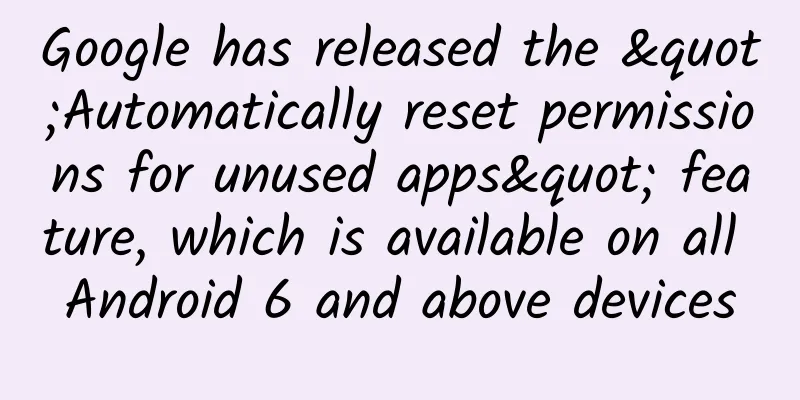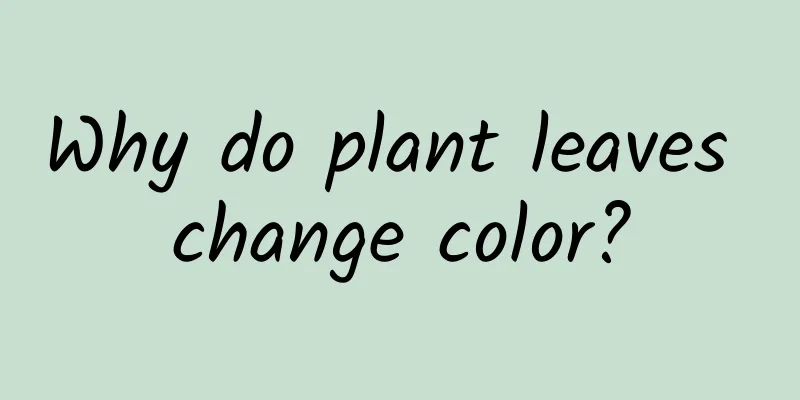Google has released the "Automatically reset permissions for unused apps" feature, which is available on all Android 6 and above devices

|
Automatically "reset permissions for unused apps" is a privacy feature introduced by Google in the Android 11 system to help users automatically limit infrequently used apps. This feature was previously limited to Android 11 and higher, but Google announced on Friday that it will be available in Android 6 and higher. Regarding the automatic "automatic reset of permissions for unused apps", the official introduction is as follows
That is, when you don't use an app for a set period of time, Android will automatically strip the app of all permissions it was previously granted, limiting it from tracking you or accessing data in the background. This is a nice feature for less tech-savvy people who aren't interested in manually organizing the inner workings of their phone. If you open the app again, it can ask for all those permissions again. Like most new Android features, "Automatically reset permissions for unused apps" is an exclusive feature launched in Android 11 last year. However, the number of users who can actually use this feature is not very large. Since the advent of Android 11, Google has stopped updating the Android version distribution map, so we don't know exactly how many users have upgraded to Android 11 and higher. Google's decentralization of "automatically reset permissions for unused apps" means that billions of devices around the world running Android 6 and above can get this privacy feature. Even Google's chart from 18 months ago showed that Android 6 and higher devices accounted for 84.9%. |
>>: Practical and fun! A list of lesser-known WeChat official gadgets
Recommend
Xiao Ying – Rhythm training class for musicians
Xiao Ying - Musicians' Rhythm Training Course...
Douyin 0-cost project: single-day income of 500, no posting of works, no account maintenance
One question that has always been mentioned in th...
Offline advertising channels and outdoor advertising formats
Outdoor advertising is the earliest advertising m...
At a time when copycat variety shows are becoming popular, let's see how "The Amazing Race 3" can redeem the reputation of copyrighted variety shows
Recently, with the launch of new seasons of progr...
Tips for creative copywriting for information flow ads, so that your ads will say goodbye to click-through rates below 1%
What kind of information flow advertising creativ...
What is nofollow? What does nofollow mean?
Many friends who are engaged in website SEO optim...
What happened to Youku and iQiyi being punished for violating laws and regulations? What is the specific situation?
What happened to Youku and iQiyi being punished f...
Three revelations from Obama wearing wearable devices
As early as 2014, US President Obama expressed hi...
How can APP use growth hacking methods to achieve 400,000 growth?
This article uses the growth hacker methodology a...
[Case Study] A large number of e-commerce information flow advertising “magic picture” design skills are shared!
Praying to God for pictures and increasing the cl...
A 19-year-old boy has a splitting headache and his whole body is purple! It turns out that the strange disease is related to the takeaway food he often eats
A few days ago, Xiaofeng (pseudonym), a 19-year-o...
What is the use of Kuaishou Blue V certification? Will traffic increase?
For Kuaishou sellers, they certainly hope to oper...
What should we do if we are rushing to complete a B-side project and don’t pay attention to design?
In B-side projects, this problem often occurs: as...
Eating 1 pack of nuts a day for 3 months and being diagnosed with high blood lipids? It is best not to buy these two kinds of nuts!
When it comes to nuts, I think many people will t...
Why do cats always put their hands in their pockets?
Ever since we got a cat at home, there has been a...









